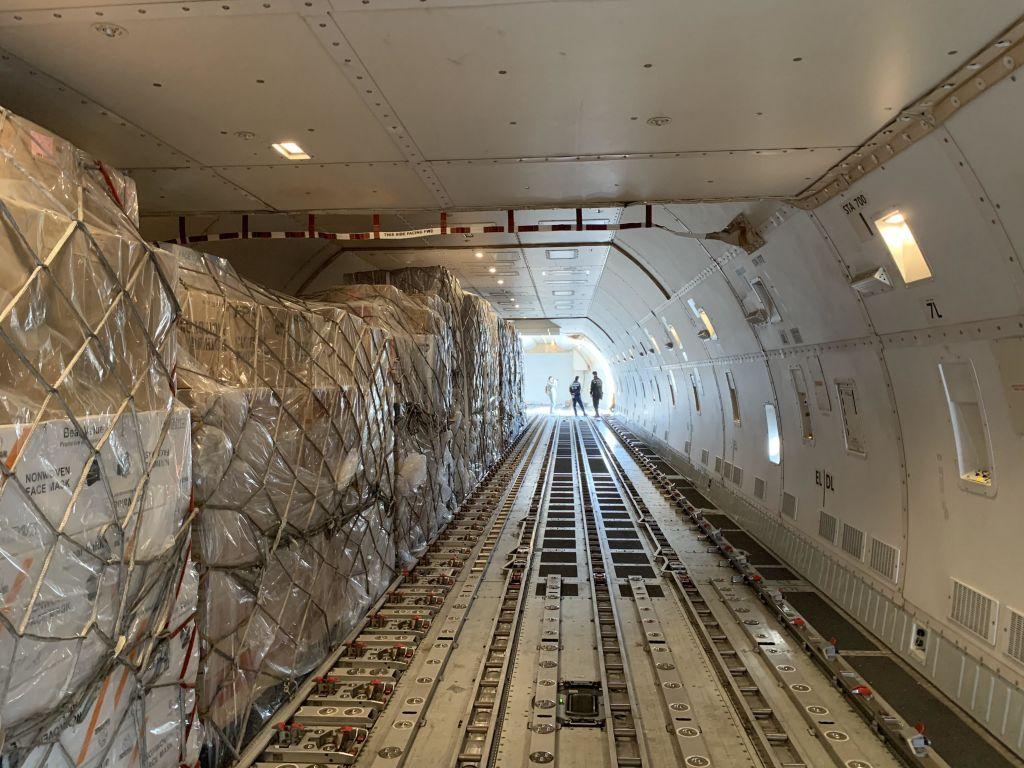Democracies need alliances to secure vital supply chains
Posted By Charles Edel on May 6, 2020 @ 15:20

For the past 30 years, geoeconomics has trumped geopolitics. The relative stability of international relations, driven by the absence of great-power rivalry and ideological competition, created an environment conducive to global economic growth. Opening markets and lowering barriers to investment and trade across borders seemed to be in everyone’s interests.
In such a benign geopolitical atmosphere, consensus emerged on the best way to do business. Supply chains stretched across the world, and companies in developed countries found it cheaper to source the components of manufactured goods in China. Globalisation allowed for ‘just in time [1]’ delivery, with companies keeping inventories low and precisely calculating supply and demand.
However, the broad acceptance of this model obscured the increased risk to and potential loss in resilience of supply chains.
The onset of Covid-19 and the glaring vulnerabilities the pandemic has revealed in national capabilities have made clear that the current international economic model is insufficient to meet the threats nations face in an era of hardening international geopolitical competition [2].
Before the pandemic, there was increasing talk [3] in Canberra, Washington and elsewhere about the need to diversify supply chains, build better economic resilience among democratic nations, and tighten coordination among allies [4] to enable them to resist China’s state-led economic and political coercion [5].
This discussion had only recently begun gaining steam, but it has now burst into public view because the debate is no longer theoretical. Developed countries like Australia and the United States now realise that they are dependent on China [6] not just for education and tourism dollars, but also for the production of essential items such as healthcare equipment and pharmaceuticals.
The national security community’s long-held concern about overdependence on Chinese supply chains and production is now shared more broadly than ever.
So, what’s the solution? Some suggest repatriating domestic manufacturing capacity, while others predict a return to globalisation after the worst of the coronavirus crisis abates. In reality, neither of those approaches is likely to work. Instead, the best solution is supply-chain diversification and cross-border resilience.
Earlier this month, Japan became the first country to significantly underwrite efforts to shift supply chains out of China. Tokyo earmarked ¥243.5 billion [7] (A$3.6 billion) of its Covid-19 economic stimulus to help its manufacturers move production out of China and back to Japan or Southeast Asia.
Japan isn’t the only country taking a hard look at domestic manufacturing.
Australia’s industry, science and technology minister, Karen Andrews [8], has said it’s wrong to be totally or heavily reliant on supply chains that come from overseas. She echoed Prime Minister Scott Morrison’s [9] admonition that his government would be looking ‘carefully at our domestic economic sovereignty’.
The US government has issued a number of executive orders intended to reduce supply-chain vulnerabilities and there’s a bipartisan bill [10] before Congress to reduce American reliance on China for the production of pharmaceuticals. Senator Marco Rubio explained [11], ‘There comes a point where, as a nation, we have to ask ourselves what are the critical goods that you must retain the ability to make even if it’s not the most efficient outcome.’ Elizabeth Warren, who co-sponsored the bill with Rubio, called this a ‘common sense solution’.
A growing number of nations now realise that they need to stockpile more goods, ensure that their supply chains come from trusted partners, and build up their industrial capacities. But national manufacturing capabilities cannot be built overnight or cheaply. It’s also unrealistic to expect that nations will be able to develop domestic production capacity in every critical industry.
Moreover, whatever emerges in the wake of the pandemic will not be the same form of globalisation [12] we had before. Prior to the outbreak, there were already calls to limit globalisation, with increasing restrictions on immigration in the developed world, and multinational trade deals becoming less politically viable.
Concerns over China’s predatory economics were driving governments to restrict foreign investments and tighten export controls on critical technologies. The pandemic will accelerate these trends.
Ultimately, neither rapid national self-sufficiency nor deglobalisation is a viable option.
However, there’s a middle path for democratic nations: an economic alliance structure, in which countries strengthen their capabilities in mutually supportive ways. Our existing alliances now have the opportunity to move beyond the military realm and into the economic arena.
This system would seek security through greater diversification and would necessitate revisiting the rules under which global trade operates, including encouraging certain countries to become trusted suppliers for like-minded nations.
Australia could, for example, take the lead on critical minerals while the US could build on its existing technological strengths. Further investment could be made to enhance production capabilities for medical supplies in Southeast Asia. Scandinavia could take the lead on mobile communications, while Germany could further develop its advanced manufacturing capabilities.
Regardless of the industry, government support would be required if manufacturers were to remain economically viable against companies subsidised by the Chinese state.
To be sure, doing this will have costs—to governments, which would need to support certain industries, and to citizens, who will have to pay more for goods that come from trusted providers. But it will also have benefits for governments, for business and ultimately for citizens seeking greater security and better health.
Article printed from The Strategist: https://aspistrategist.ru
URL to article: /democracies-need-alliances-to-secure-vital-supply-chains/
URLs in this post:
[1] just in time: https://www.theatlantic.com/ideas/archive/2020/03/supply-chains-and-coronavirus/608329/
[2] geopolitical competition: https://nationalinterest.org/feature/end-great-power-peace-46282
[3] increasing talk: https://www.ussc.edu.au/analysis/the-future-of-the-us-australia-alliance-in-an-era-of-great-power-competition
[4] among allies: https://www.cnas.org/publications/reports/forging-an-alliance-innovation-base
[5] economic and political coercion: https://twitter.com/michael_ASPI/status/1201718169624145921
[6] dependent on China: https://www.nytimes.com/2020/03/11/business/economy/coronavirus-china-trump-drugs.html
[7] earmarked ¥243.5 billion: https://www.bloomberg.com/news/articles/2020-04-08/japan-to-fund-firms-to-shift-production-out-of-china
[8] Karen Andrews: https://www.minister.industry.gov.au/ministers/karenandrews/transcripts/interview-2gb-breakfast-chris-smith
[9] Scott Morrison’s: https://www.pm.gov.au/media/press-conference-australian-parliament-house-6
[10] bipartisan bill: https://www.congress.gov/bill/116th-congress/senate-bill/3538/text
[11] explained: https://www.nytimes.com/2020/04/10/us/politics/coronavirus-congress-china.html
[12] same form of globalisation: https://foreignpolicy.com/2020/04/17/globalization-trade-war-after-coronavirus-pandemic/
Click here to print.